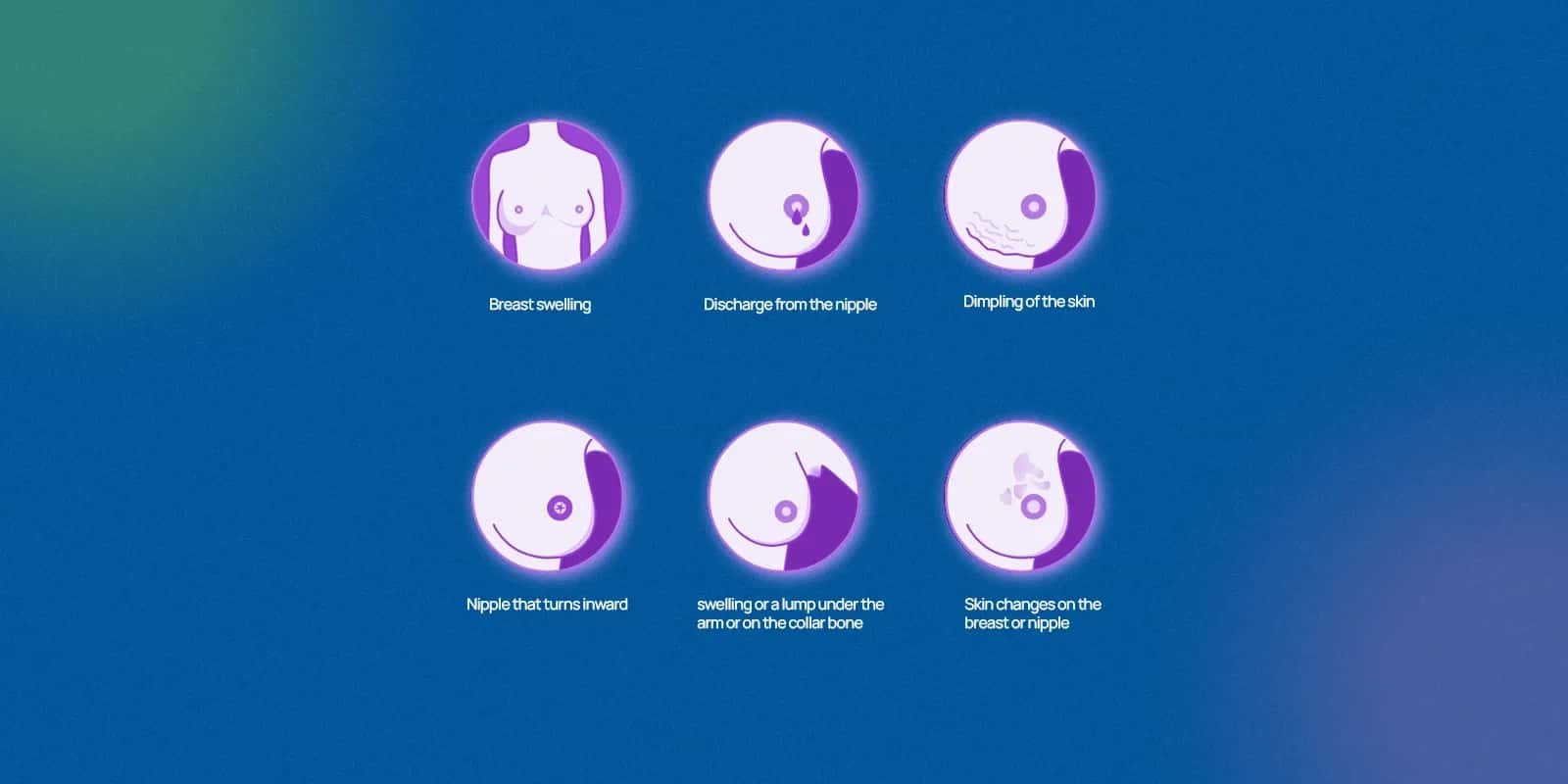Is There a Breast Cancer Vaccine? Yes, Here’s All You Need to Know About It

Introduction
Breast cancer has been tormenting women for decades. Millions of women every year are diagnosed with breast cancer, but there is a beacon of hope for them now as the medical world makes waves with a breast cancer vaccine from Anixa Biosciences, a biotechnology company in the US.
Researchers have been pursuing the goal of preventing breast cancer, and they have finally done it now, so the question is, “Is there really a breast cancer vaccine?” The answer to that is “Yes!” Women can finally step out of the shadow of fear and embrace a life filled with health and happiness.
The Dawn of a New Era: Understanding the Breast Cancer Vaccine Breakthrough
The breast cancer vaccine is in the news and for good reason. In contrast to the conventional treatments like chemotherapy or surgery, the vaccine aims to prevent it from occurring in the first place. This is a monumental feat achieved by modern oncology in cancer prevention.
However, this wasn't an easy journey. Researchers and medical experts worldwide have been searching for a cure for a long time, but to no avail. The ultimate goal has always been cancer prevention, but earlier efforts primarily focused on detection and treatment, leaving little room for other initiatives.
The dream is now closer than ever with Anixia Bisciences’ vaccine, designed in collaboration with the Cleveland Clinic. This new vaccine brings a new era of hope where people can have a chance to combat breast cancer.
The Science Behind the Hope: How Does This Breast Cancer Vaccine Work?
The goal of this newly developed breast cancer vaccine is prevention rather than treatment. It is targeted towards high-risk but healthy people, particularly women who have a genetic predisposition or family history of breast cancer.
Mechanism of Action
This vaccine specifically targets alpha-lactalbumin, a protein present only in breast tissue during lactation. This protein is abnormally expressed in a large number of triple-negative breast cancers, which are the most dangerous and malignant type of breast cancer.
The vaccine stops tumours from growing by teaching the immune system to identify and eliminate cells that generate alpha-lactalbumin.
Immune System Training
A fragment of this protein is shot into the body through the vaccine, causing the immune system to perceive it as a danger. After vaccination, the immune system targets and destroys the cells if they start expressing this protein abnormally.
Scientific Achievements
Preclinical research on the vaccine has been approved, and studies on mice have yielded encouraging results. These results have given the green light for researchers to move to Phase 1 human trials.
Why Is It Significant?
This strategy, in contrast to earlier attempts, focuses on a specific target protein, thereby increasing the likelihood of success and reducing the risk of autoimmune complications. This innovative and targeted approach has the potential to transform cancer prevention completely.

The Name and The Target: What is the Breast Cancer Vaccine Name and Which Cancers Does it Target?
The breast cancer vaccine that has made headlines is called the Cleveland Clinic Breast Cancer Vaccine. Although it does not yet have a commercial name, the global medical community is closely monitoring its evolution.
This vaccine targets Triple Negative Breast Cancer (TNBC), which is highly invasive, non-treatable, and prone to relapse, making it a highly dangerous type of cancer.
The vaccine is not supposed to be used against all types of breast cancer, but its success would open up a whole avenue for a fight against other subtypes of breast cancer. That is why this vaccine is both a breakthrough and a potential prototype for a broader application.
Eligibility and Availability: Breast Cancer Vaccine Age Limit and When to Expect It
Target Population and Age Limit
Although the age limit for the breast cancer vaccine has not yet been set, the current trials focus on women who are at a high risk and carry the BRCA1 gene mutation. The intention is to vaccinate before the cancer has a chance to grow.
Clinical Trials Progress
Phase 1 clinical trials for the vaccine are presently underway, with an emphasis on immune response and safety. Before more extensive efficacy testing can start, this is a crucial step.
Availability and Regulatory Approval
In all likelihood, the public won't be able to access it for several years. Phase 2 and Phase 3 trials, which evaluate the vaccine's efficacy and side effects in larger groups, need to be conducted.
If it is successful, regulatory agencies such as the FDA or India's DCGI will need to approve it before releasing it to the public.

The Indian Context: Breast Cancer Vaccine India and Prevention Efforts
India currently has over 1.5 lakh new cases of breast cancer annually, and late-stage diagnosis is still prevalent.
If successful, the breast cancer vaccine could be incorporated into national immunisation schedules or special cancer prevention programs and help people get the help they need.
Public-private partnerships may also play a role in scaling distribution once the vaccine is approved. This vaccine for breast cancer prevention in India is a breakthrough that has the potential to fundamentally change India's approach to cancer prevention.
Beyond the Vaccine: Continuing the Fight Against Breast Cancer
The breast cancer vaccine is like a beacon of hope, but it is not a cure-all solution. People need regular screenings, a healthy lifestyle, and awareness to battle this disease.
Moreover, research in targeted therapies, genetic testing, and personalised medicine continues to push the boundaries of what is possible in breast cancer care.
Conclusion: A Glimmer of Hope in the Fight Against Cancer
The development of a vaccine for breast cancer is a historic step forward in cancer prevention. Despite it still being in its early stages, the vaccine presents a hopeful future, where prevention is prioritized more than the cure, lives are saved, and breast cancer one day becomes a thing of the past.

FAQs
Q. Are there vaccines for breast cancer?
A. Researchers are focused on creating vaccines for breast cancer, but none are available for public use to date.
A vaccine for breast cancer is in the development stage, aiming at milk protein alpha-lactalbumin, which is included in 70% of triple-negative scenarios of breast cancer.
This vaccine will focus on mobilising the immune system of the patient to detect and destroy breast cancer cells.
Q. What age is the breast cancer vaccine given?
A. The breast cancer vaccine is given to girls between the ages of nine and 16 years as part of a countrywide initiative for addressing growing cases of cancer. Well, this vaccine is currently in the development stage.
Q. When will a breast cancer vaccine be available?
A. There is no confirmed data on vaccine availability. The Indian government has included measures to launch the cancer vaccine that focuses on breast, oral, and cervical cancers in the upcoming five to six months. Though the time frame is subject to alter.
Q. What is the name of the cancer vaccine in India?
A. The name of the cancer vaccine has not been announced to date. But, this cancer vaccine is in the development stage and is created in collaboration with the Cleveland Clinic, and it aims at the milk protein alpha-lactalbumin.
Q. When will the breast cancer vaccine be available in India?
A. The Indian government is focused on announcing the breast cancer vaccine in around five to six months from now, and the vaccine will focus on oral, cervical and breast cancers. But this time frame can be changed.
Q. Are we close to curing breast cancer?
A. Considerable progress is being made in breast cancer research, but the cure remains elusive. The development of immunotherapies and vaccines will give hope, but in-depth research is required to handle the complications of breast cancer.

Aruna Irani's Regret: Her Cancer Returned After Skipping Chemo. Here's What Every Woman Must Know About Breast Cancer Stages

Hina Khan (Yeh Rishta Kya Kehlata Hain) Is Fighting Stage 3 Breast Cancer: A Guide to Treatment and Understanding Advanced Stages

Is Your Bra Linked to Breast Cancer?

The Detailed Guide To Male Breast Cancer

15 Celebrity Champions Who Overcame Cancer

Anatomy of Cancer: Understand Its Development

Best Test for Detecting Pancreatic Cancer Explained


